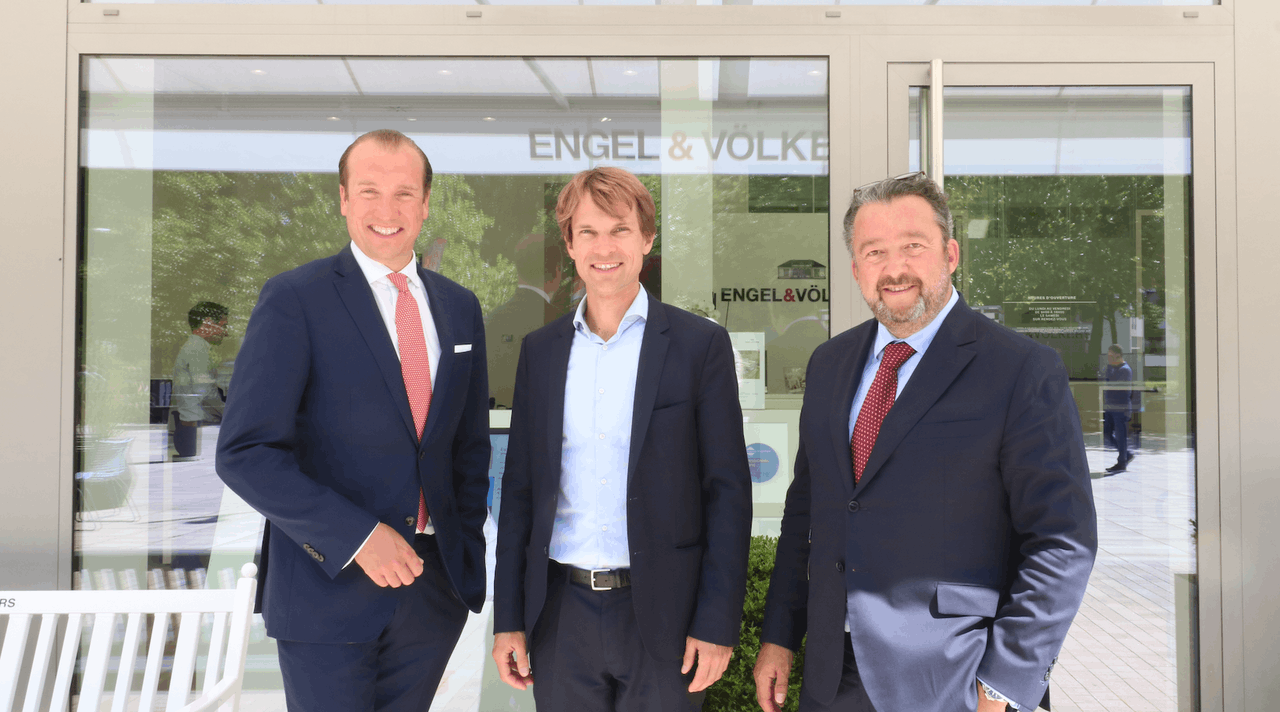While low interest rates allowed more people to buy property in the last 15 years, real estate demands have now shifted. The covid-19 pandemic coupled with rising inflation as a result of the war in Ukraine have created uncertainty, but the housing market has defied global challenges according to experts from real estate firm Engel & Völkers.
“What we’ve seen in the past years is that everyone wanted to buy. We had growth rates of 15-20% in prices. This kind of overload always needs to end in some time,” said Philipp Niemann, managing director of Engel & Völkers Luxembourg at a press event at the firm’s office in Luxembourg City. “You need a healthy market and I think what’s happening now is that we’re coming back to a healthy situation on the market.”
The real estate agency has noticed an increase in quality of the offers, with buyers more committed to acquiring a property which is a change a pace from the previous high number of requests for visits and a lower number of people calling for a second visit or to make an offer. The interest in high-quality residential and commercial real estate, which stands out due to a premium location, is higher both globally and in Luxembourg.
“It’s a different attitude from the client. And those who are really calling us to day to buy are really interested to buy,” said Raymond Klein, head of sales at Engel & Völkers Luxembourg.
The time to buy is now
Klein points towards the as proof of the resilience of the Luxembourg economy. With inflation rate in the Euro zone expected to reach 8.1% and Eurostat estimating Luxembourg’s annual inflation rate for May at 9.1%, real estate buyers are incentivised to act now.
“It’s now the moment to buy because it will be more expensive in the future. That’s really the conclusion we’ve made,” said Klein.
Such a reaction to inflation is certainly not uncommon with people having already in the past resorted to buying property to shift cash. With only those who can afford it being able to benefit from acquiring real estate before prices go up, there is the question whether that will lead to property being shifted even more into the hands of the wealthy. But according to the experts it is not yet time to raise the alarm.
“The amount of people we are speaking about is so little. Their influence on the total residential market is pretty low. On the top level there are more people trying to invest their money in real estate. But it is such a little amount of people that this is not influencing the big market of real estate,” said Niemann.
Crisis-induced change in perspective
Preferences have changed with energy prices going up and the real estate experts point towards an inclination for buildings that are well insulated which allow homeowners to save on heating. As a result of the pandemic there is also a big demand for towns close to Luxembourg City such as Steinsel, Hesperange or Bertrange, with buyers looking for more space while partially working from home. However, the demand for accommodation remains high and there is also a lack of workforce to accelerate construction.
“We have seen big companies buy smaller companies just to get the manpower from them. So it is very interesting and it’s a problem that will last,” said Klein while pointing out that this is an issue that is very specific for Luxembourg.
Building sustainably also appears to be an issue despite efforts from the government to create more long-lasting accommodation which is also not as damaging to the environment when materials need to be disposed of.
“The government took some decisions some years ago to allow only AAA building to be built in Luxembourg. There were some mistakes being made in my opinion in the way it was planned. We have today very low energy buildings that will create problems in 100-150 years when they will have to be knocked down. But there is no other technology allowing the construction companies to reach those high levels that were requested by the government,” said Klein.
Different courses for different horses
When it comes to real estate, Luxembourgers and expats tend to look for different things. While those born in the country contribute to the portion of real estate owners, expats naturally tend to take time before they commit. Those who arrive in the country rarely start on a CDI (contract with an undetermined length) and often opt for renting a place, but not for too long.
“Those are the clients that we see in the rental department for the first two years and then afterwards when their situation professionally becomes more stable, we see them on the buying side,” said Klein.
The experts from Engel & Völkers did not provide any projections, saying that although the market is now healthy there is uncertainty about how long the war in Ukraine will go on for and what the extent of the repercussions on the economy are going to be.
